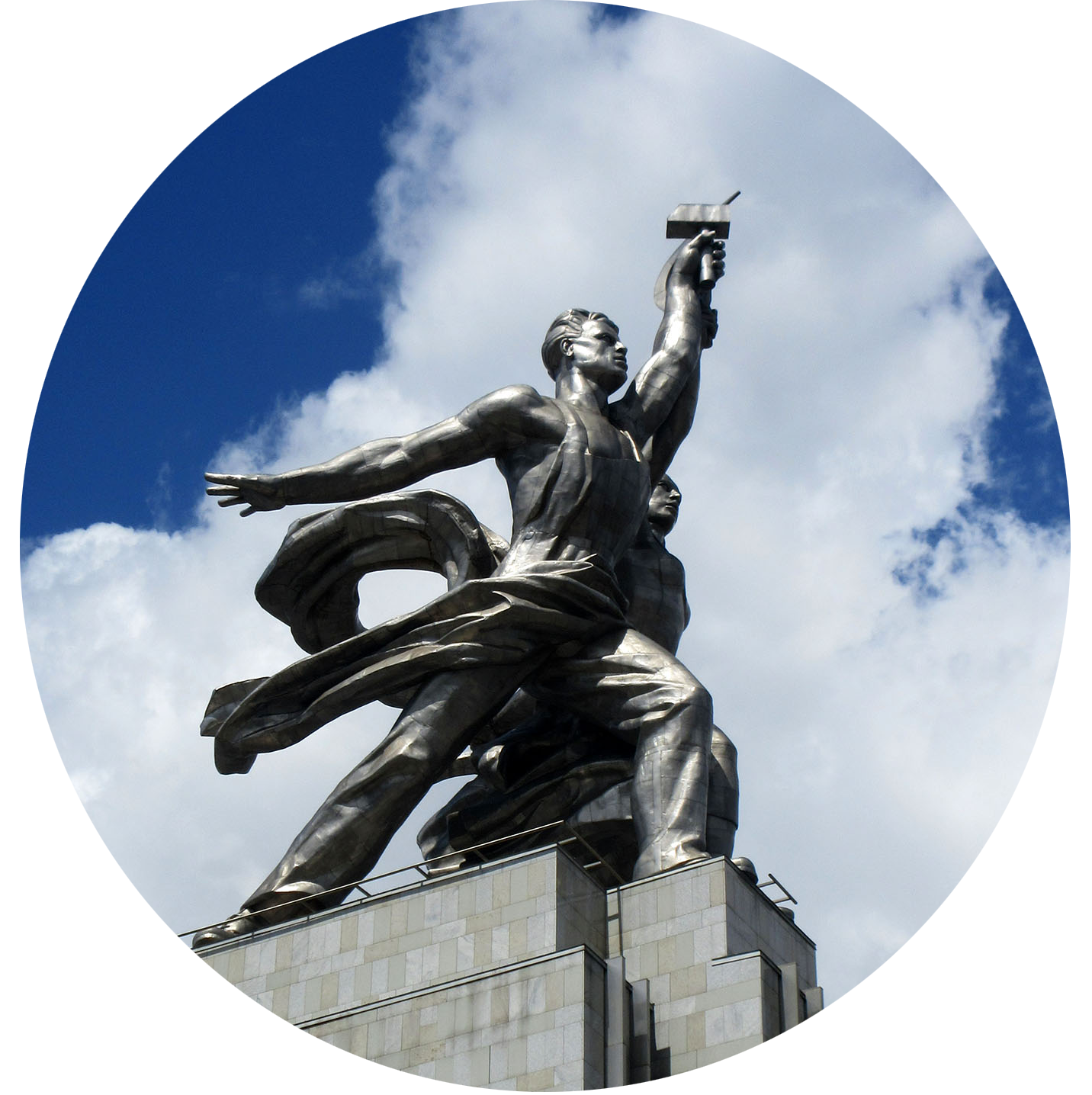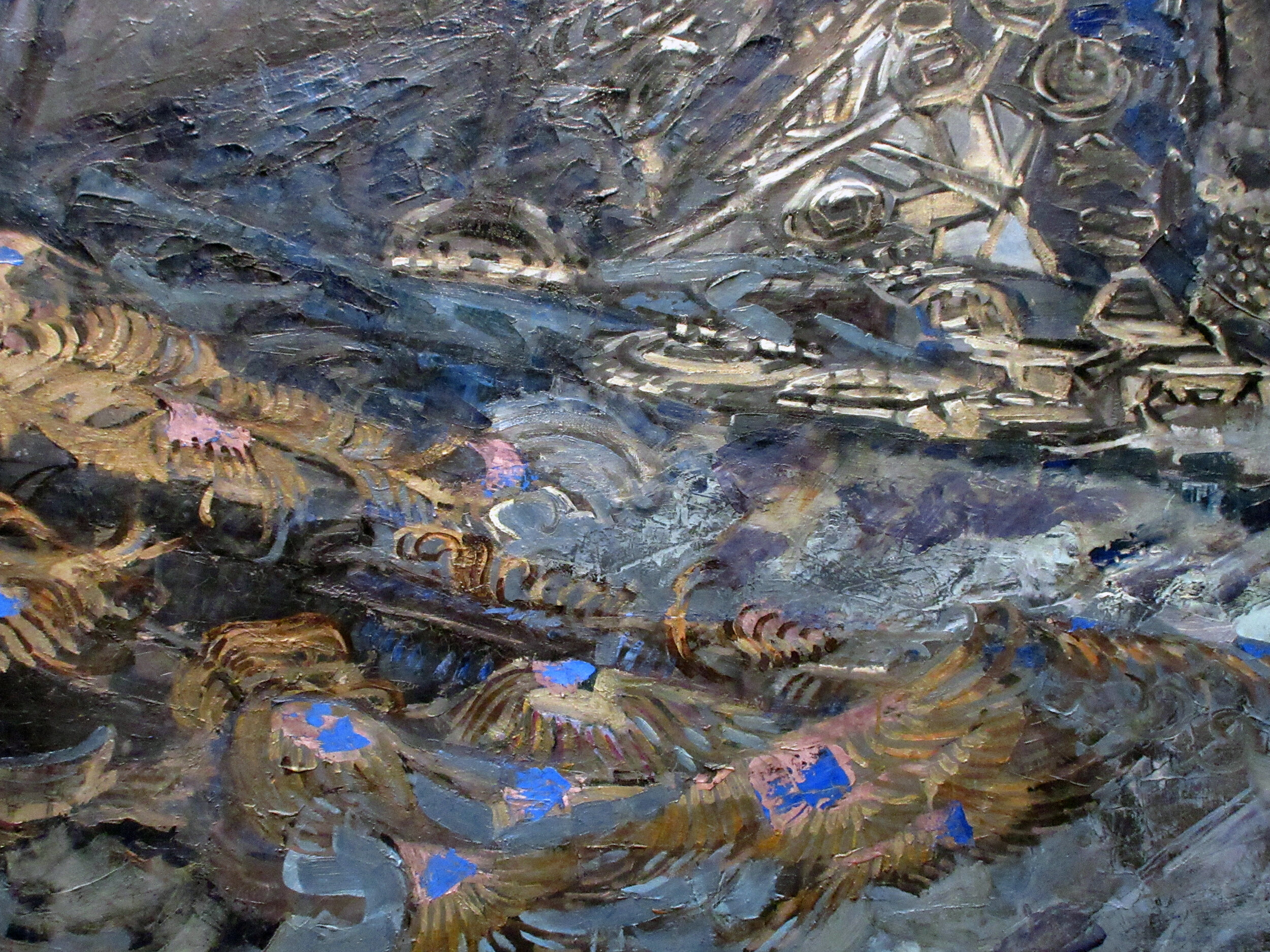Gippius: What is Sin?
This poem, by Silver-Age poet Zinaida Gippius, offers a perhaps counter-intuitive definition of sin. She touches on basic idea to be found elsewhere in Russian thought and literature: that a kind of indifference, of “lukewarm-ness,” is the essence of sin — not, say, hatred, transgression, blasphemy. Indeed, Gippius suggests that a fear of transgression — of “daring and dreaming” — a “prudent” satisfaction with the status quo, with inaction, with half-measures — is itself sinful. She creates a number of interesting neologisms which unify seeming contradictions as single concepts — for example, “cамонелюбие-самовлюблённость” (literally, “self-non-love-self-enamoredness”), thereby claiming that hatred of oneself is in fact a form of self-love, of self-obsession. The poem closes with the challenging claim that a life lacking both curses and prayers is a sinful life — indeed, it is “Deicide.” Again, ideas that would seem to occupy opposite poles of a conventional moral spectrum — prayers and curses — are here joined together as necessary elements of a life of spiritual intensity, of constant oscillation between faith and despair — and this newly unified, elevated mode of speech is opposed, it would seem, to the idle speech of a sinfully passive existence.
What is Sin?
Sin is modest thought and modest action,
Self-enamored self-disdain,
Apathetic self-diffusion,
And pacified intoxication.
Sin is unserious feeling, unserious thought,
Semi-mischievous semi-agitation.
Prudent semi-senselessness,
Semi-attention and semi-forgetfulness.
Sin is to live without daring or dreaming,
Neither esteemed nor persecuted.
Sin is to know neither horror nor hope
And to be accepted, but not loved.
Sin is an equi-disdain towards pride and shame…
A meek acceptance of all things, without a fight…
The gravest of all sins is Deicide:
A life devoid of curses and of prayers.
Что есть грех?
Гpex - маломыслие и малодеянье,
Самонелюбие-самовлюблённость,
И равнодушное саморассеянье,
И успокоенная упоённость.
Грех - легкочувствие и легкодумие,
Полупроказливость - полуволненье.
Благоразумное полубезумие,
Полувнимание - полузабвенье.
Грех - жить без дерзости и без мечтания,
Не признаваемым - и не гонимым.
Не знать ни ужаса, ни упования
И быть приемлемым, но не любимым.
К стыду и гордости - равнопрезрение...
Всему покорственный привет без битвы...
Тяжеле всех грехов - Богоубиение,
Жизнь без проклятия - и без молитвы.
1902
Vocab notes:
мало-мыслие (мало, little + мыслие, thought, thinking): little thought • мало-деянье (мало, little + деяние, action, acting): little action. • само-нелюбие (cамо, self + не, non + любие, love, loving): a “not loving oneself” • само-влюблённость (само, self + влюбленность, infatuation, being in love): self-infatuation, self-love a “being in love with oneself” • равнодушный: ambivalent, indifferent • само-рассеянье (само, self + раз, apart, in various directions + сеяние, sowing or scattering): self-diffusion, self-scattering • успокоенный: tranquilized, pacified • упоённость: intoxication • легкочувствие (легко, light + чувствие, feeling): a “light feeling,” a lack of serious feeling • легкодумие (легко, light + думие, thought, thinking): a “light thinking,” a lack of serious thought • полу-проказливость (полу, half, semi + проказливость, mischievousness): “half-mischief,” semi-mischievousness • полу-волненье (полу, half, semi + волненье, agitation, excitement): “half-excitement,” semi-agitation • полу-внимание (полу, half, semi + внимание, attention): “half-attention,” semi-attention • дерзость: audacity, impudence • мечтаниe: dreaming • признаваемый: recognized, acknowledged • гонимый: persecuted, pursued • ужас: horror • упованиe: expectancy, hope • приемлемый: accepted, received • любимый: loved • стыд: shame • гордость, и: pride • равно-презрение: an equal disdain • покорственный: submissive • битва: battle, fight • тяжеле: more serious, more grievous, from тяжёлый: serious • убиение: murder • проклятие: curse • молитва: prayer

